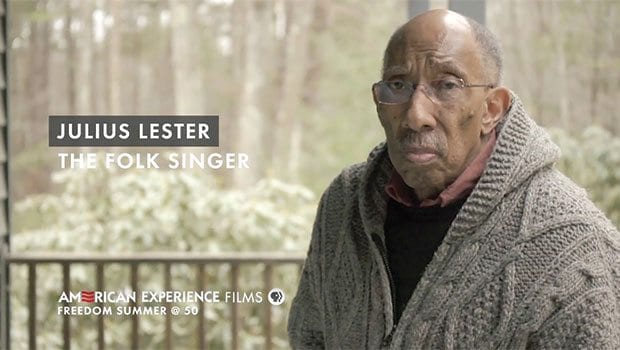Former civil rights activist, scholar, Julius Lester dead at 78
Career took him from black power movement to UMass Afro-American and Judaic studies

Open a recent edition of the Reform Jewish prayer book and you’ll find a quote by Julius Lester. The reading comes a few pages after the Sh’ma, the holiest prayer in Judaism.
Then search the Black Studies section of a good bookstore or library. Among Lester’s 40 books is one shouting, “Look Out, Whitey! Black Power’s Gon’ Get Your Mama!”
On Thursday, the world lost the man behind those words, a figure both beloved and at times a lightning rod to his black and Jewish communities. Lester, 78, of Belchertown, passed away peacefully, his daughter Lian Amaris posted on his Facebook page.
Against the grain
I first met Lester 30 years ago. Then, I was assigned to do a National Public Radio story about his version of the tales of Uncle Remus — African folklore that had been appropriated by whites — retold from a black perspective.
Born in St. Louis, the son of a Methodist minister, Lester became a folk singer and organizer for the Student Nonviolent Coordinating Committee, and later one of its more radical voices as the Civil Rights Movement gave way to Black Power. His activism and books led to an appointment at the University of Massachusetts Amherst, where I met him in 1987 and began by asking what his job title was.
“I don’t like titles,” he gnarled back, leading me to rephrase the question. “OK, just tell me your name and what you do.”
“My name is Julius Lester and I teach … in Afro-American and Judaic Studies.”
Whaa…? Do they group all minorities in one department here? I thought, but continued with the interview.
For that, he was enthusiastic, his booming voice bringing Br’er Rabbit to life while explaining the symbolism of African trickster figures. When he finished, I returned to my unasked question: if Afro-American and Judaic studies were one department.
“No, they’re separate,” he replied — then added, pausing for effect: “I’m Jewish.”
“Well, so am I!” I said, and we both fell back laughing. Though I had been pulling the “Surprise! I’m Black and Jewish!” trick practically since birth, I had never done so on another Black Jew, and was pretty certain Lester hadn’t had the tables turned, either. We agreed I should come back. I did, with a camera crew for WGBH’s “Say Brother.”
Again, we discussed his books, but also more contentious stuff: the Jewish hostility hurled at him in 1968 for airing an anti-Semitic poem on his New York radio show in the midst of a fierce school desegregation battle, and accusations nearly 20 years later that now he was taking the Jewish side in disputes between the groups at UMass. He would later be forced from the Afro-Am Department.
Spiritual roots
Most sensitive, we covered his spirituality, beginning from when he learned as a child that his great-grandfather had been a Jew, and Lester’s vow to convert some day. He did, in 1982. With that identity still fairly new to him, I pressed whether Jews would ever truly welcome him.
That wasn’t why he converted, he said. “It had to be something that was so necessary for my sense of who I am, that I would (convert) even if no Jew ever accepted me.”
Similarly, if anyone suggested he was attempting to shed his blackness, his writing did anything but. He frequently returned to the horrors of slavery, and uncomfortable subjects like “Let’s Talk about Race” — written as a children’s book.
Though Lester had other stops along his spiritual journey — an early autobiography, “All is Well,” ended with finding solace in a monastery — in the decades since we met he grew to be far more than just accepted by Jews. So too did awareness of Black Jews in general, in part through groups formed to painstakingly explain that we are neither exotics nor the punchlines of Sammy Davis Jr. jokes, but normative constituents of the black and Jewish experiences.
Lester did not directly join our efforts, but quietly augmented them — through his books and articles, lectures and mentoring, and lay leadership of a small Vermont synagogue, touching the hearts of thousands. Over the decades, we checked in from time to time, as brothers in a struggle do.
His is now over, leaving us with his gift of dignity. And all is truly well.
Robin Washington is a former Banner managing editor and was co-founder, in 1995, of the Alliance of Black Jews. He may be reached at robin@robinwashington.com or via Twitter @robinbirk


![Banner [Virtual] Art Gallery](https://baystatebanner.com/wp-content/uploads/2024/04/Cagen-Luse_Men-at-store-e1713991226112-150x150.jpg)



